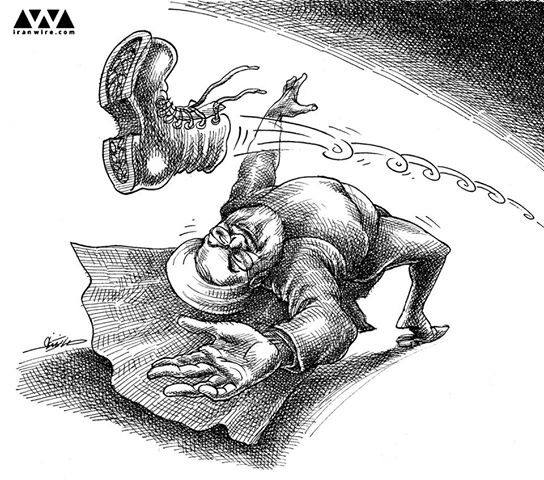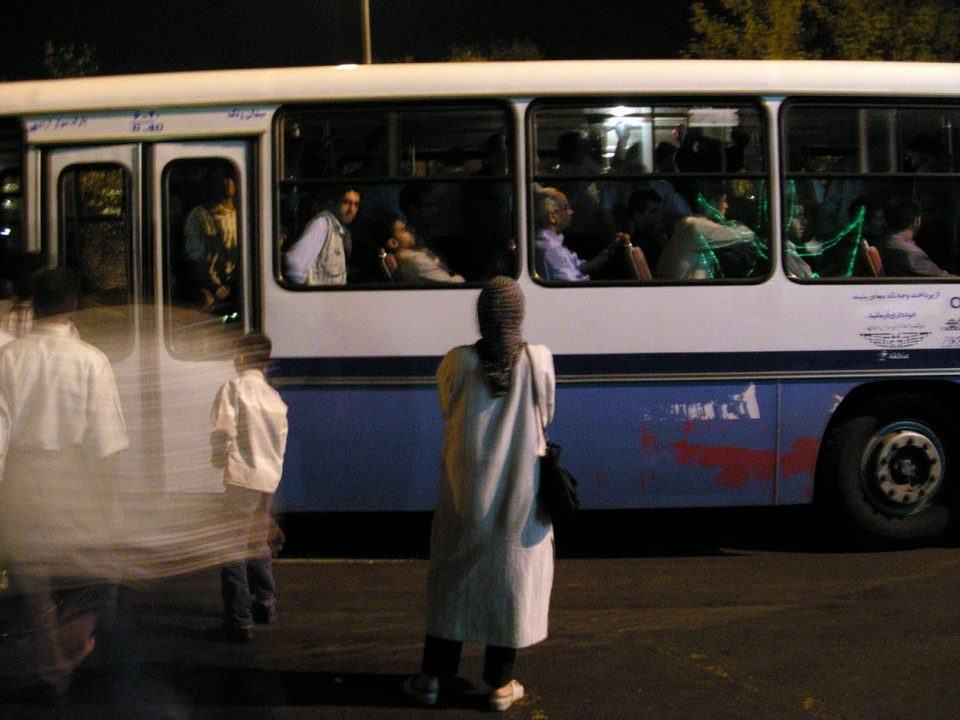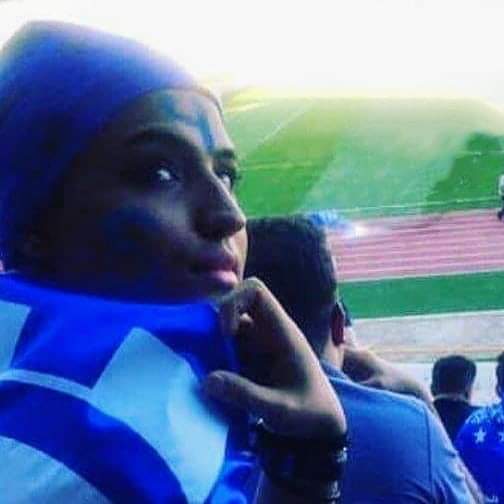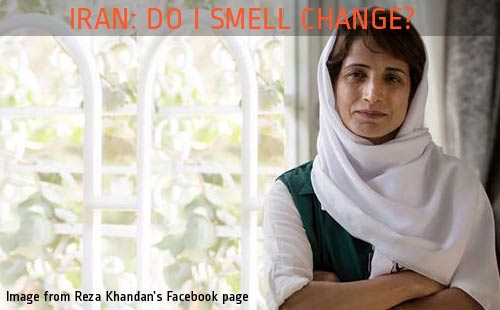
#Iran — The Smell of Change
September 18, 2013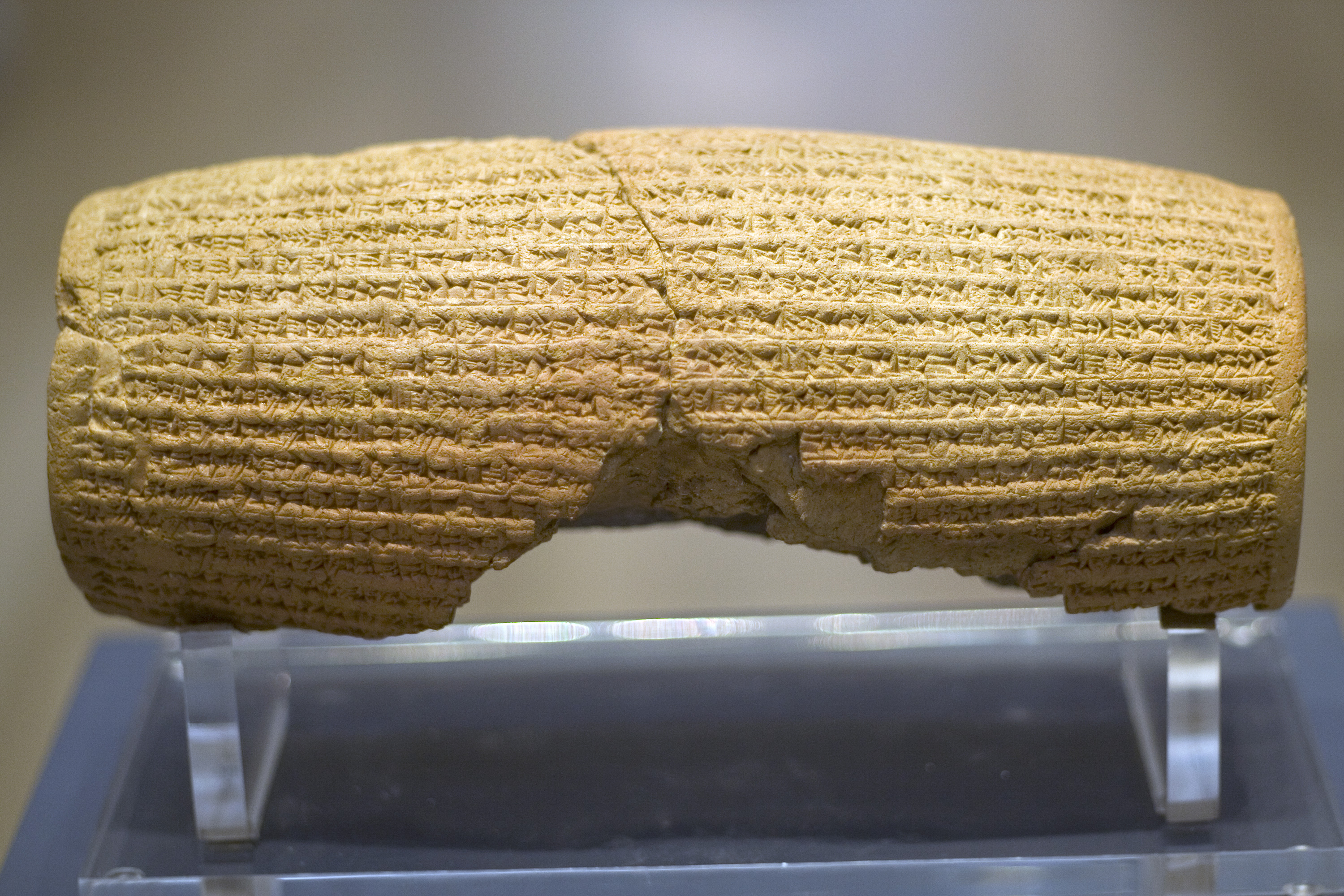
Event: Does the #CyrusCylinder Still Speak to Us Today
October 7, 2013Arseh Sevom—Could Hassan Rouhani be The One? Cartoonist Mana Neyastani taps into the zeitgeist with his image of Iran’s most recent president as Neo from the Matrix. Since Rouhani’s inauguration, a number of prisoners of conscience have been released, a more than thirty year freeze in relations between the US and Iran defrosting, and hopes raised. Some of the sanctions have been eased and tons of medications are being cleared through customs. After his return from the US, Rouhani faced both support and opposition at the airport and at least one shoe was thrown in anger. Many of those in opposition were supporters of the former nuclear negotiator and hardline candidate. This prompted a member of parliament to question the violent actions of hardliners against Rouhani. The times they are a-changing…maybe. And, in the case of Iran’s women’s Kata team, who were disqualified for wearing too much hijab, they are not changing fast enough.
By Peyman Majidzadeh
Prisoners of Conscience Freed: More on Their Way Out?
The amount of good news Iranian people heard in the past 10 days was almost too much for them to handle! The story began on Wednesday September 18, when various news outlets including BBC News [en] reported that several prisoners of conscience had been released from prison, chief among them was the award winning human rights lawyer Nasrin Sotudeh. Her freedom created a joyful atmosphere in Iran.
One week later, on Wednesday September 25, Iranian Intelligence Minister Seyyed Mahmoud Alavi announced that more prisoners might be released on October 23, coinciding with the Muslim feast of Eid al-Ghadeer (The Hadith of the pond of Khumm). After the announcement, rumors were spread that Eid al-Ghadir could be the day reformist leaders Mousavi, Rahnavard and Karroubi are freed from their long house arrest. Time will tell.
US Takes Steps on Iran Sanctions Lift
According to Radio Zamaneh [fa], the Office of Foreign Assets Control (OFAC) of the US Department of the Treasury passed laws to ease up activities of Iranian non-governmental organizations. Now the NGOs are allowed to perform a number of environmental and humanistic activities, including protection of wildlife and habitats and procurement of basic needs and medicine.
The US and the international community have long imposed sanctions against Iran, in the hopes of forcing the country to abandon its nuclear programs. However, the new strategy is to lift some sanctions and open the gates for negotiation and diplomatic relations. Efficacy of sanctions is debatable, but it seems that the new carrot-stick strategy may have had some effect.
International Crisis Group [en] has developed and interactive that highlights the major unilateral, multilateral and international sanctions imposed on Iran since 1979 and breaks them down by year, economic impact, trigger, targets, and reversibility.
Iranian Female Athletes Deprived of Gold Medal
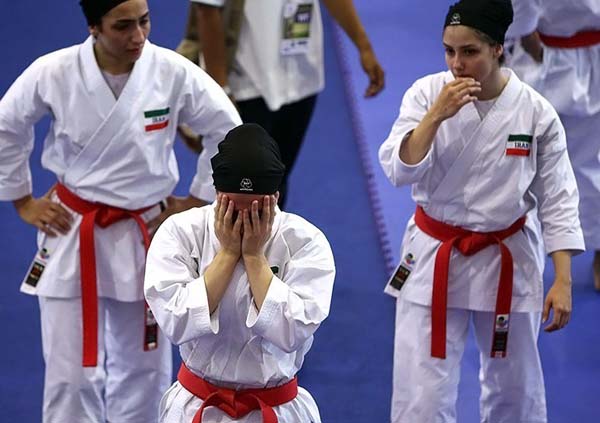
In a sad event, the Iranian women Kata team was disqualified from winning a gold medal in the Indonesian Islamic Games. According to reports [fa], Iran defeated Egypt in a semi-final match to go for gold, but the Egyptian team objected Iranian team’s jersey and the referee annulled the result.
It was reported that the reason for the unfortunate disqualification was a phone call before the match by the deputy head of Iran’s Ministry of Physical Education Marzieh Akbarabadi, who is also in charge of all women’s sports in the country. In the phone call, Akbarabadi gave the team a “warning” about their hijab.
The event went viral on the internet and some blogs [fa] even requested Akbarabadi’s resignation. Ironically, the referee who annulled the result was Iranian.
Medicine to Be Released from Customs
Islamic Republic of Iran Customs Administration (IRICA) [fa] reported that an order for immediate release of medicine and other goods has been issued by the head of the administration Masoud Karbasian. Currently, almost 300,000 tons of goods are stocked in special enterprise zones, waiting to be released. The new order makes the situation for Iranians suffering from a number of diseases much better.
In a similar report [fa], Food and Drug Organization chief Rasoul Dinarvand announced the distribution of drugs for special and refractory diseases in order to reduce their price. Saying that the price of some drugs has increased by 300% in the last year, he stated that he is planning to return the prices to where they stood in the year 2012. Given the difficult situation many in Iran have had in the last year, it is indeed a positive move.
Hello Mr. President!
Iranian president Hassan Rouhani had a promising trip to New York, coming back home with a huge deal of hope to resolve the country’s long-lasting problems on the international scene. However, no one expected the last-minute phone call [en]. Yes, it happened, a 15-minute phone call between the presidents of Iran and the US. This was the first high level contact since the two countries said goodbye to their diplomatic relations following the Tehran hostage crisis over three decades ago. The history-changing phone call overshadowed everything and left many observers with the question: “What’s next?”
Regardless of who suggested the phone call first, it is a huge step forward; even more constructive than “the handshake that wasn’t.” After a tweet by Rouhani confirming the phone call, the CEO of Twitter Dick Costolo tweeted [en]:
I feel like I’m witnessing a tectonic shift in the geo-political landscape reading @HassanRouhani tweets. Fascinating.
Let’s wait and hope for positive outcomes of the phone call. A new wave of hope is revived amongst the youth in Iran now.
Was that a Shoe? Or Our Sole Enemy?
When Rouhani arrived in Iran, he was met by detractors who threw shoes and supporters who showed thanks.
I believe Rouhani should have expected to have shoes thrown at him, or harsh criticisms (like this [fa]) from extremists. After all, extremists still have power in the country and benefit from keeping the US as the sole enemy to preserve their ideological hegemony.
Those who voted for Rouhani, on the other hand, have welcomed the gradual yet positive steps taken by his administration. They showed their gratitude by going to the airport to receive the president with their “Thank you Rouhani” signs.
Iran-West “Constructive” Nuclear Talks
Iran’s nuclear case has been at the heart of international sanctions against the country. Now, after almost 8 years of deadlock, silver lining seems to emerge. After director general of IAEA Yukiya Amano showed optimism on Iran’s nuclear talks, Iranian Foreign Minister Mohammad Javad Zarif and counterparts from the US, France, Russia, China, and Germany had a meeting on Thursday September 26. They agreed to meet in Geneva next month to continue the talks. Zarif said after the meeting that the key world powers had agreed to fast-track negotiations and getting positive results within a year. At the Council of Foreign Relations after his meeting with P5+1 and John Kerry, Zarif said: ”We have to match our words with actions.”
The world is waiting and watching Mr. Zarif.
If you are interested in reading a brief history of Iran’s nuclear case, the following timeline [en] on Iran’s nuclear program by the New York Times is recommended.
A Suggestion for Tehran
Tehran is an ancient city which is, unfortunately, struggling with multiple problems including traffic, air pollution, density, etc. Tehran Foundation, an independent and non-governmental organization established in 2011 in an attempt to enhance the situation of this ancient city, has created a contest named “A suggestion for Tehran.” The contest is open to public. Everyone can participate in the contest and try to improve the capital of Iran. Tehran needs you.


